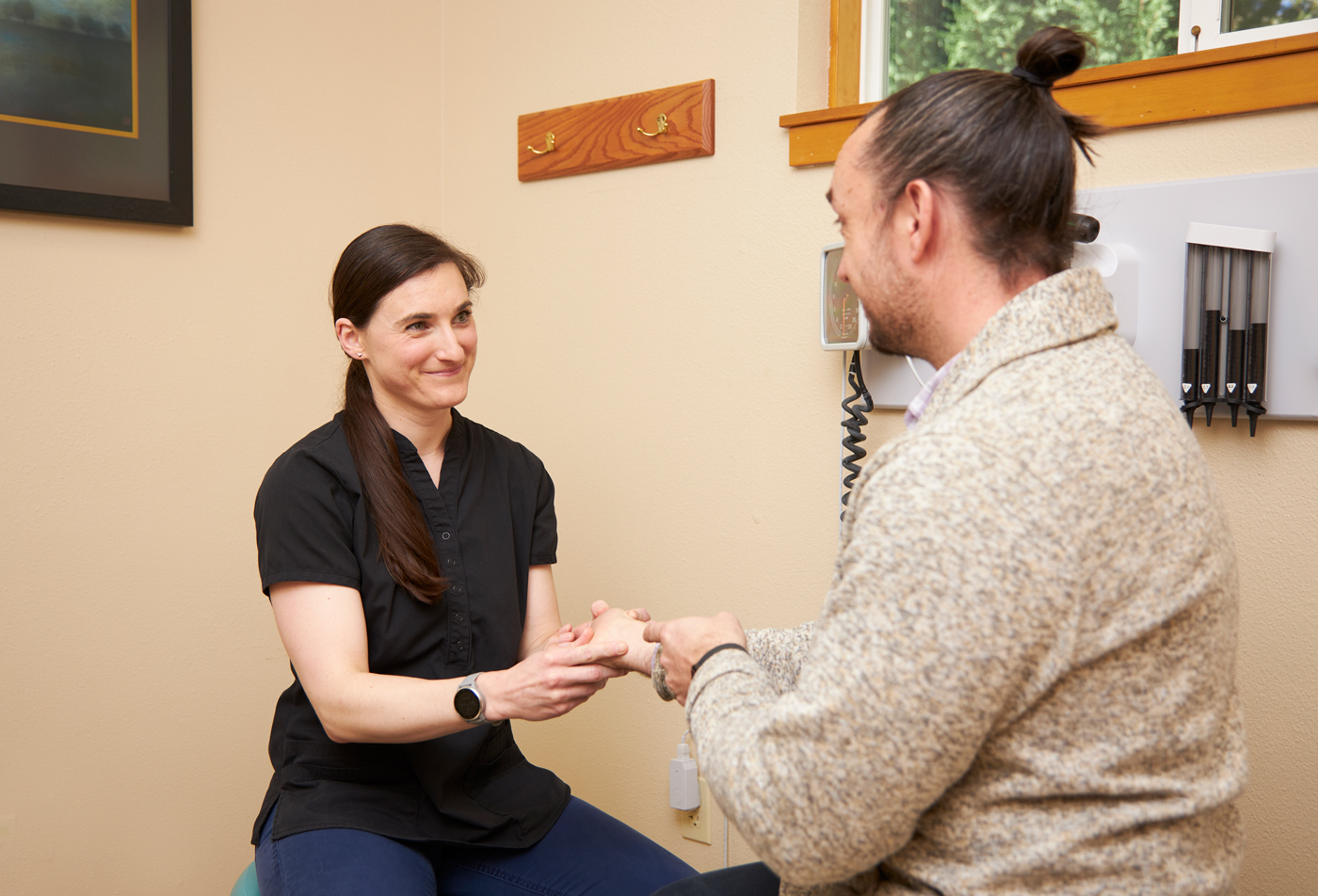Prevent Skin Cancer: Your Skin Needs Regular Check-Ups, Too
Published May 1, 2023

With the many types of cancers that afflict the human body, skin cancer is easily overlooked, especially if you are not in the habit of regularly checking your skin for changes and abnormalities.
The truth? Skin cancer is very often treatable and beatable with regular skin check-ups. Get to know your skin and you’ll spot changes that could signal it’s time to make an appointment with your primary care provider, who can remove troubling lesions or refer you to a skin care specialist for further examination and treatments.
Types of skin cancer
According to the American Cancer Society, the types of skin cancer are:
- Basal cell carcinoma – This is the most common type of skin cancer. It starts in the basal cell layer of your epidermis and appears often on sun-exposed areas of your body, such as your ear tips, nose, scalp and neck. If left untreated, basal cell carcinomas could spread into your bones or other tissues below the skin layer and become more serious.
- Squamous cell – Red, scaly spots called actinic keratosis are a pre-condition of squamous cell carcinoma. They appear usually on the ears, the face or on the backs of hands, especially on people with fair skin. They are slow growing and can turn into squamous cell carcinomas if left untreated. These, too, can invade deeper skin layers and become more serious.
- Melanoma – Less common than basal cell and squamous cell carcinomas, but melanomas can grow and spread and are potentially life-threatening if left untreated. If someone in your family has been treated for melanoma, your risk factor for melanoma is higher.
Prevention is key
Risk factors for skin cancers vary per person based on their skin type and family history, but first and foremost everyone should be aware of the harmful effects of the ultraviolet rays found in sunlight to their skin. With repeated exposure to UV rays, the DNA inside your skin cells can change. Within this skin damage, skin cancers can start and fester.
This is why, especially for fair-skinned people whose skin easily burns, it’s important to apply sunscreens that block harmful UVA and UVB rays and also wear clothing that covers vulnerable skin, such as face, ears and nose. Remember, too, that even on cloudy days, UV rays can damage fair skin.
Get to know your skin. Have a loved one help you make note of markings all over your body and re-check frequently for changes. If you notice any changes in your skin, make an appointment with your primary care provider to have your skin examined. Early detection of skin cancer can save lives.
Subscribe to our monthly emails for Your Well-Being! Get health and wellness tips, hospital news, staff spotlights, career opportunities, our cafe menu and more, sent right to your inbox!
DISCLAIMER: No content on this website, regardless of date, should be used as a substitute for direct medical advice from your primary care provider.

